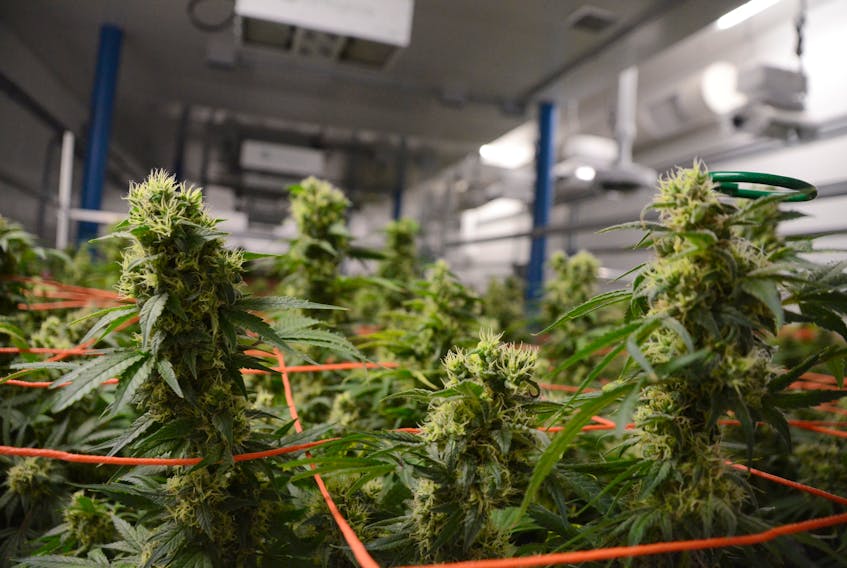Provided all goes as planned, legal cannabis won’t have much affect on the political landscape across the land, but rarely does all go as planned.
Canadian attitudes toward legalization were baked into Prime Minister Justin Trudeau’s brownies long before he took Canada on this magical mystery tour. Public opinion on the recreational use of cannabis has been fairly constant since the debate began in earnest and hasn’t changed in the lead up to the big event, Oct. 17.

About a third of Canadians opposed legal pot from the outset and still do. Support for legalization seems more fluid – polls have the level ranging from the low 50s to well over 60 per cent – which suggests some soft support could move into the opposition camp if legalization goes badly.
If it goes well and there is a political payoff in this, it goes to Trudeau and company, who get to put a checkmark in the promises-kept column even if legal pot doesn’t move a vote.
But where there’s potential political risk, the provinces have assumed more than they’d like.
As both the regulator and retailer, provinces will shoulder the blame for problems that seem almost inevitable when a popular product moves from the illicit marketplace to a legal, regulated and government-run operation. That hasn’t been attempted in Canada since 1920 when the two-year experiment with alcohol prohibition ended.
The federal Liberals made Canada just the second nation on earth – after Uruguay – where pot’s legal. But, Ottawa also deftly downloaded the heavy lifting to the provinces, who can spot a cash cow from any distance, so they didn’t complain much.
Canadian attitudes toward legalization were baked into Prime Minister Justin Trudeau’s brownies long before he took Canada on this magical mystery tour.
The illicit cannabis trade in Canada is said to be valued at more than $5 billion annually, and most experts say the legal trade will eventually surpass that number, but only if the illegal pot business is severely curtailed.
The provinces will take on that job with gusto once they become the seller. Provinces brook no competition, legal or illegal.
The country will be a patchwork of regulations and retail models on Oct. 17, but across Atlantic Canada the cannabis marketplace is fairly uniform.
All four governments handed the sales job to their liquor corporations, which will either peddle the stuff themselves, or in the case of Newfoundland mix in some licenced private retailers.
Either way, the provinces are knee-deep in the pot business, and if the business is done poorly – if there are supply problems or if limited retail capacity results in bad service – the provinces will wear it.
How much, if any, political damage provincial governments will suffer if they turn out to be lousy pot dealers is anybody’s guess. There are no examples to draw on. Pot is legal in nine US states, but in America governments don’t sell stuff.
Canada is the global test case. Legalization could affect criminal activity, public health and much more, so governments, businesses and researchers around the world are watching.
Ottawa positioned legalization as the way to take a bit out of organized crime and – through strict regulation – keep pot away from kids. Failure on either of those fronts, particularly the more visible problem of kids using pot could cost the Liberals dearly.
The federal government is also politically vulnerable if the business of pot takes on a Gritty crimson hue.
How much, if any, political damage provincial governments will suffer if they turn out to be lousy pot dealers is anybody’s guess.
It’s not hard to find prominent Liberals tucked into pot-related enterprises, but its not hard to find prominent Liberals anywhere in Canadian business, so the Liberals’ habitual weakness for playing favourites is not a pot problem for them, yet. But that will be watched by opposition parties and the news media.
The bottom line is a sold majority of Canadians favour legalization for recreational use. That same majority wants it done right, meaning keep it away from kids, keep high drivers off the roads, limit or prohibit consumption in public places, and make sure the product is safe.
If those boxes are checked, and Ottawa doesn’t play favourites on the business side, the federal Liberals are home free. Blow it, and they will face the wrath of Canadians.
The provinces need to check some of those same boxes, plus deliver the product, but even if they fail the business test early on, the extent of political damage is unknown and likely limited. Most fair-minded citizens will allow a period of transition, but after that, whether they use cannabis or not, people will expect efficient government operations.
There will be quantifiable results soon enough, but then it will be time for edibles to hit the marketplace bringing a whole new level of uncertainty.
Jim Vibert, a journalist and writer for longer than he cares to admit, consulted or worked for five Nova Scotia governments. He now keeps a close and critical eye on provincial and regional powers and writes columns for the SaltWire Network.
Read the full report: CLEARING THE AIR: Taking Atlantic Canada's pot pulse









